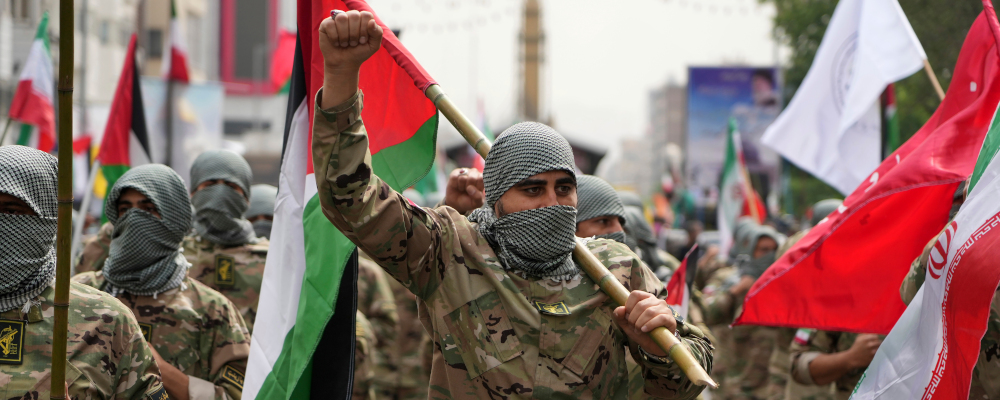Thinking about the tragedy in Israel this past week and the slaughter of innocents by Hamas terrorists guided and supported by the deadly hand of theocratic Iran, my mind went back to the Iranian Revolution that ended a 2,500-year-old Persian dynasty and what might have been.
The fall of any regime has complex reasons. Still, one factor was a foreign and Western press aided by their leftist academic friends and activists who were caught up in a narrative of an underdog people versus a Western-backed authoritarian oppressor. Under that mentality, they were committed to bringing down the Kingdom of Reza Pahlavi, the Shah, while ignoring the dark cloud of tyranny gathering on the horizon under Ayatollah Ruhollah Khomeini.
The syndrome is not new. Roger Scruton, the Diogenes of Britain, identified and dissected the condition—with characteristic prescience and clarity—when he wrote in the Times in 1984:
Who remembers Iran? Who remembers, that is, the shameful stampede of Western journalists and intellectuals to the cause of the Iranian revolution? Who remembers the hysterical propaganda campaign against the Shah, the lurid press reports of corruption, police oppression, palace decadence, and constitutional crisis? Who remembers the thousands of Iranian students in Western universities enthusiastically absorbing the fashionable Marxist nonsense purveyed by armchair radicals so as one day to lead the campaign of riot and mendacity which preceded the Shah’s downfall?
His subject was the Iranian Revolution and the clash between the Shah and the Ayatollah. He laid out clearly how the West’s gullible and self-loathing intelligentsia justified a regime of subjugation and human abuses. Scruton would not have been surprised to learn that the Iranian Revolutionary Guard is a force behind Hamas. He all but predicted it would happen and that the uncritical Left in the West would again look like Lenin’s “useful idiots.”
And who was this malicious Persian Shah that was such a threat? Looked carefully, he was a reformer struggling to bring Iran out of the dark ages of feudalism. He returned land to the peasants, built schools to fight illiteracy, and gave women the franchise to vote and run for office. Pahlavi saw himself as the Iranian Kemal Ataturk, a progressive who wanted to bring prosperity to his people by westernizing. One could argue that the Shah was an autocrat, but he wasn’t a tyrant, and there is a difference.
The Shah was in a death struggle with Khomeini, who fought to thwart any modernization of Iran. Khomeini showed that there was only one route for Iran: rule by religious decree accompanied by the iron-clad belief that Israel and America were Islam’s greatest enemies.
After an attempt on the Shah’s life, Khomeini was banished to the holy city of Najaf, Iraq, and even spent the last few months of exile in France. Once there, Michel Foucault, Jean-Paul Sartre, and President Francois Mitterand greeted him as a hero, again proving the Left’s strong taste for authoritarianism.
The Shah believed that by becoming an ally of the West, he would be rewarded by staving off the Soviet influence in the Middle East. He was wrong. France, Germany, and the United States decided they could do business with a theocratic government rather than a weakened and indecisive leader who tried to appease his enemies at home while pleasing his Western allies abroad.
The Shah tried to warn the West through interviews of the dangers to follow if he failed to remain in power. Still, the international press, including the American and Canadian media, including the CBC, relentlessly accused him of violating human rights without understanding the political situation in a country still trapped in the Middle Ages. They had no imagination of what would come under an absolute religious tyranny.

Journalists who once travelled freely throughout Iran under the Shah were now barred from returning after the Revolution. If they could, Scruton writes, they would have to witness “things that beggar description: the spontaneous “justice of the revolutionary guards, the appalling scenes of violence, torture, and demonic frenzy, the public humiliation of women, the daily sacrifice of lives too young to be conscious of the meaning for which they are condemned to destruction.” This last reference is to the countless children sent to their deaths to clear landmines during the Iran-Iraq war.
Western diplomats, journalists, and B-level scholars got their wish. They helped to defeat a flawed and perhaps hapless leader, and they inadvertently aided a greater evil. They turned their heads and refused to see the tragedy of bringing the mullahs to power. What’s the use of an educated mind if not to distinguish between good and evil?




